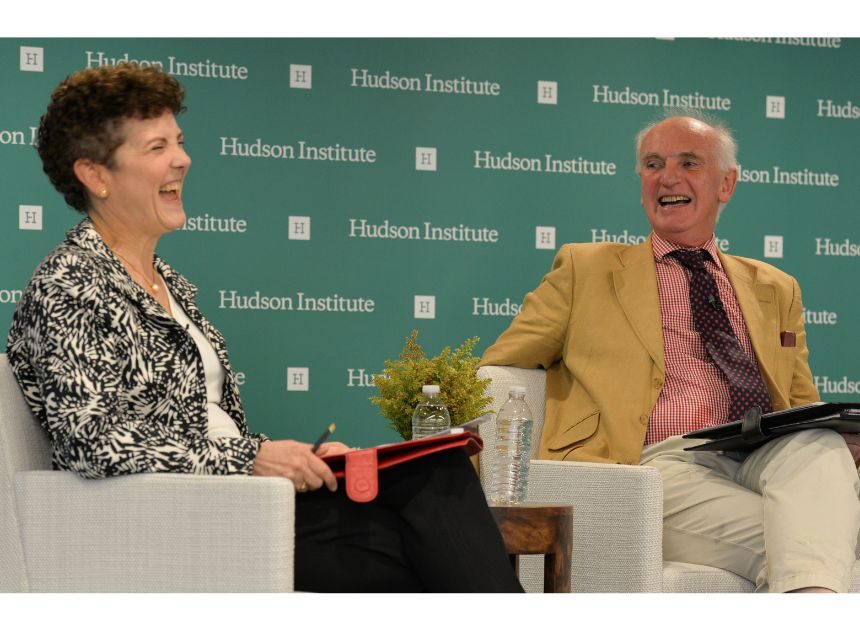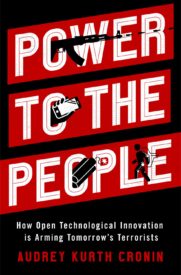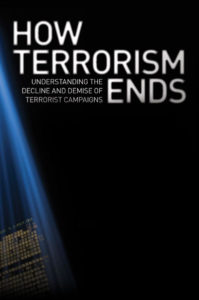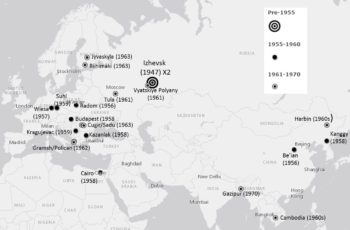


In the News
- “How Israel Can Win: Defeating Hamas Will Require a Strategy That Goes Beyond Revenge”
- “What Israel should do now”
- “Deadly Siege Marks Hamas’ Effective Use of Combat Drone Swarm”
- “We just saw the future of war”
- “Open Source Technology and Public-Private Innovation are the Key to Ukraine’s Strategic Resilience“
- “How Private Tech Companies Are Reshaping Great Power Competition“
- “Designing lethal technologies”
- “Trends in Global Terrorism and the Return of State Sponsorship”
- “Biology’s Tectonic Shifts and Novel Risks”
- “Dynamite to Drones: The Diffusion of Lethal Technology to Terrorists and Insurgents”
- More stories

Professor Audrey Kurth Cronin of Carnegie Mellon University, Pittsburgh, PA, is one of the world’s leading experts on security and how conflicts end. She is a Trustees Professor of Security and Technology and the founding director of the Carnegie Mellon Institute for Strategy and Technology (CMIST) at Carnegie Mellon University. Her career incorporates experience in both academic and policy positions, in the US and abroad. Prior to her current post she was a Distinguished Professor at American University in Washington, DC and the founding director of the Center for Security, Innovation, and New Technology at American University. Prior to this, she served as faculty member and director of War and Statecraft at the US National War College. Before that she was Specialist in Terrorism at the Congressional Research Service, advising Members of Congress in the aftermath of 9/11. She also held a number of positions in the US executive branch, including in the Office of the Secretary of Defense for Policy, and was Director of Studies for Oxford University’s Changing Character of War program. She has been Chairman of the Global Agenda Council on Terrorism of the World Economic Forum and a speaker at the WEF’s annual meetings in Davos.





Reviews & Awards
- Winner of the 2020 Airey Neave Book Prize
- Shortlisted for the Lionel Gerber Prize
- Foreign Affairs: Power to the People
- Science Magazine: From 3-D printed guns to weaponized hobby drones, open technologies pose sinister threats
- New Scientist: When Innovation Can Kill
- Engadget: Hitting the Books: Hackers can convince your IoT devices to betray you
Defense & Aerospace Podcast
Power Problems Podcast
Your Undivided Attention Podcast
The World Wars Podcast
Decisive Point Podcast
New Books Network Podcast
American Innovations Podcast
Big World Podcast
Books by Dr. Audrey Kurth Cronin
We live in an epoch of unprecedented popular empowerment. Increasing access to information, rising global living standards, growing literacy, and improving medical care and longevity are just a handful of the benefits derived from the modern march of technological innovation. Yet the same technologies that are furthering prosperity are creating critical new security vulnerabilities.
The worldwide dispersal of emerging technologies, such as commercial drones, cyber weapons, 3D printing, military robotics and autonomous systems, is generating gaping fissures in the ability of conventional armed forces to combat lethal capabilities of non-state actors, most notably terrorists, but also rogue lone actors, insurgent groups, and private armies. Never before have so many had access to such advanced technologies capable of inflicting death and mayhem. Unless we better understand the rapidly developing threats, governments, especially democracies, will be increasingly unable to combat them.










